On the first day LGBTQ+ couples could legally marry in Thailand, many of them wed in Chiang Mai on Jan. 23. Thailand is the first country in Southeast Asia, but only the third place in Asia – after Nepal and Taiwan – to legalize same-sex marriage under a marriage equality law. Check our our photos from the historic day.
A historic day for Thailand as gay marriage becomes legal
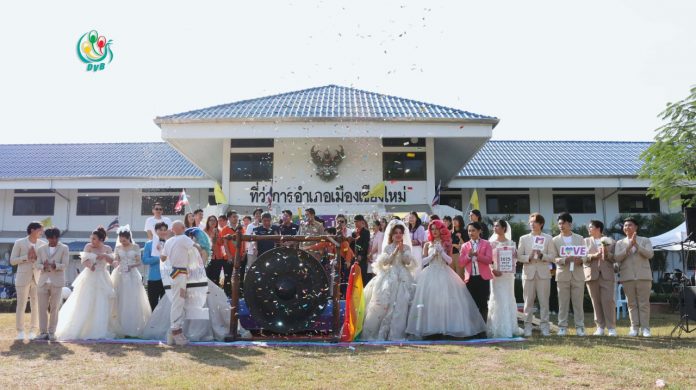
China and Thailand crack down on cyber scams in Myanmar

The Chinese Embassy in Myanmar announced that over 70,000 cyber scam suspects were arrested, and 160 human trafficking victims from several countries were rescued, in a crackdown on transnational crime along Myanmar’s border with China and Thailand from August to December. The Lancang-Mekong Integrated Law Enforcement and Security Cooperation Center launched “Operation Seagull,” which includes officials from China, Laos, Myanmar, Cambodia, Thailand, and Vietnam.
A Q&A with Miemie Winn Byrd on President Trump’s executive order
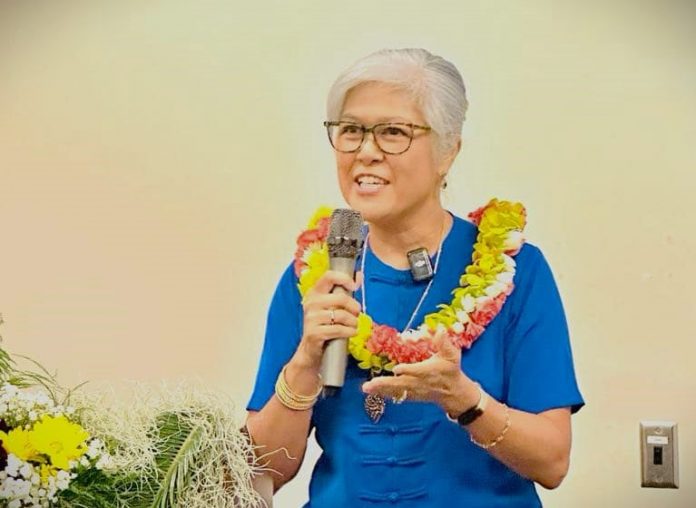
Miemie Winn Byrd, a retired U.S. Army officer and professor at the Asia-Pacific Center for Security Studies, spoke to DVB about President Donald Trump’s executive order freezing funding for the United States Agency for International Development (USAID) for 90 days pending its alignment with Trump’s “America First” policy. This order has affected medical care and assistance going to 100,000 Myanmar refugees living in nine camps along Thailand’s border.
DVB: How does President Trump’s executive order affect Myanmar?
MWB: Compared to other regions [and countries] like Gaza and Ukraine, support for Myanmar refugees is relatively limited. But I understand there could be hardships [faced] since some refugees depend on [assistance]. But I don’t think it can have much impact on the resistance [to the 2021 military coup] because about 70 percent of it is organic. Yes, this could create some inconvenience. But I believe it won’t stop the resistance.
DVB: The funding freeze will last 90 days. What do you think will happen afterwards?
MWB: We’ll just have to wait and see because this administration is unique in its way of doing things. [U.S.] Secretary of State Marco Rubio is savvy about international relations, so I believe that he understands the situation. Foreign assistance is a tool in [U.S.] foreign relations, so I don’t think they will cut all of the aid. Let’s just wait and see.
DVB: What about the BURMA Act? How does this freeze affect it?
MWB: It’s interesting. The Biden administration was very slow in implementing it. Marco Rubio was one of its architects, so he knew this [BURMA] Act was necessary. I believe he will be more active in implementing it. The downside is uncertainties in funding given the freeze on foreign aid. But I think implementing the clauses of the [BURMA] Act that don’t cost money will be quicker than before.
DVB: USAID funds some media outlets [in exile]. This freeze cuts their source of funding. Will there be further consequences?
MWB: They will need to demonstrate how the funding contributes to the U.S. national interest. This administration’s slogan is “America First” so its assistance to others must demonstrably support the U.S. national interest. If not, they’ll find it hard to get further funding.
DVB: What about other sectors?
MWB: It’s the same. The fund recipients must be able to explain how they can contribute to the U.S. interest and security or their programs will be cut.
DVB: What does the new Trump administration in the U.S. mean for Myanmar?
China has become more aggressive, so the Myanmar diaspora in the U.S. needs to lobby the U.S. government more so that it will understand the relationship between Myanmar and China. And it will be more interested in Myanmar’s affairs even more than the Biden administration was. I think this administration will be sterner in its approach to China. Judging by all this, Myanmar will receive more attention, in my opinion.
DVB: Is there anything you would like to add?
MWB: I just wanted to say that you must do what you have to do. If you rely on other countries, you’ll be at their mercy. This resistance [to the 2021 military coup] is self-made, compared to Ukraine and Gaza, it won’t be affected by this funding freeze much. Despite some inconveniences, it’ll keep going on.
Watch the DVB TV News interview with Miemie Winn Byrd here: “US အထောက်အပံ့တွေရပ်သွားလည်း တော်လှန်ရေး ရပ်သွားမှာမဟုတ်ဘူး” – DVB Interview – YouTube
Chinese Lunar New Year celebrated in northern Thailand
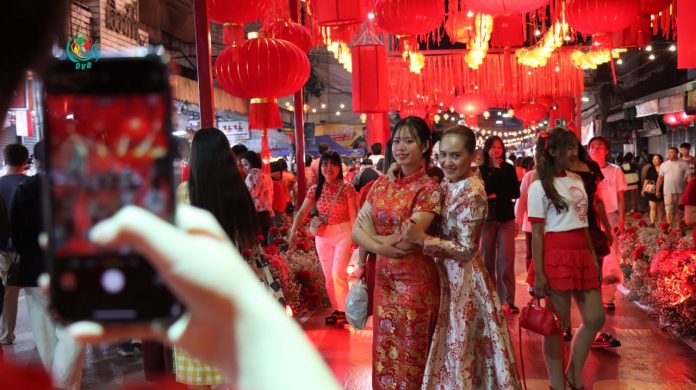
The annual Chinese Lunar New Year Festival was held at the Warorot Market (Kad Luang) in Chiang Mai, Thailand on Jan. 29. Chinese, Thais and foreign tourists gathered in Chinatown to watch a dragon dance performance, set off fireworks, and take photos under the red lanterns.
The Chinese New Year is associated with 12 animals with one being assigned each year – due to mythology -along with one of the five elements: wood, fire, earth, metal, and water. This year’s Chinese New Year is named “Year of the Wood Snake.”
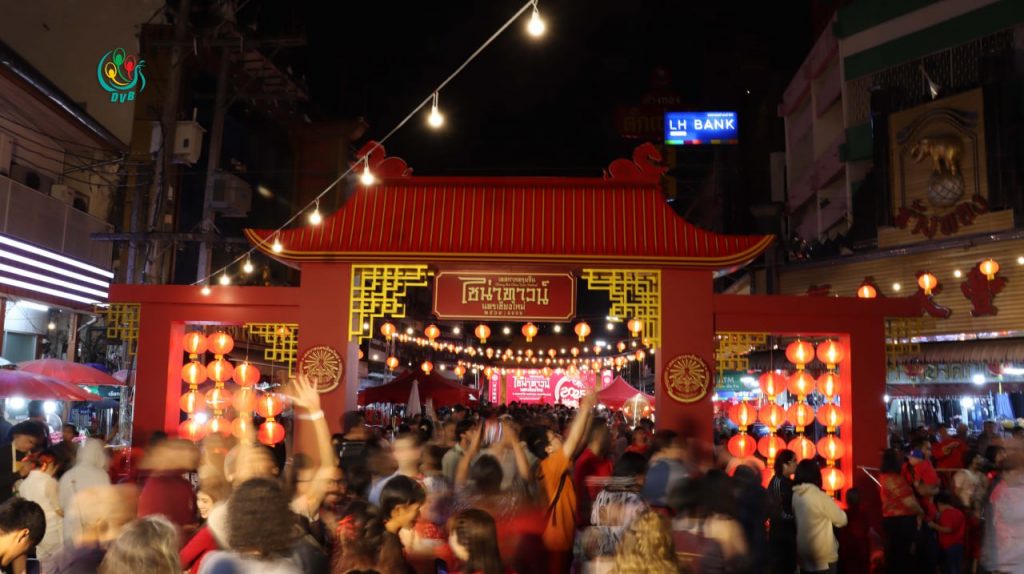

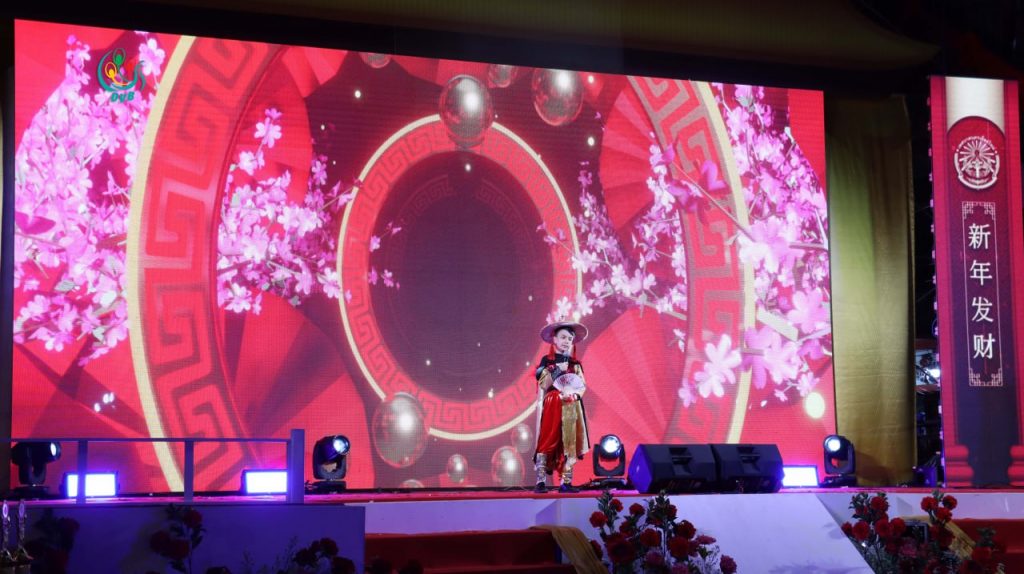
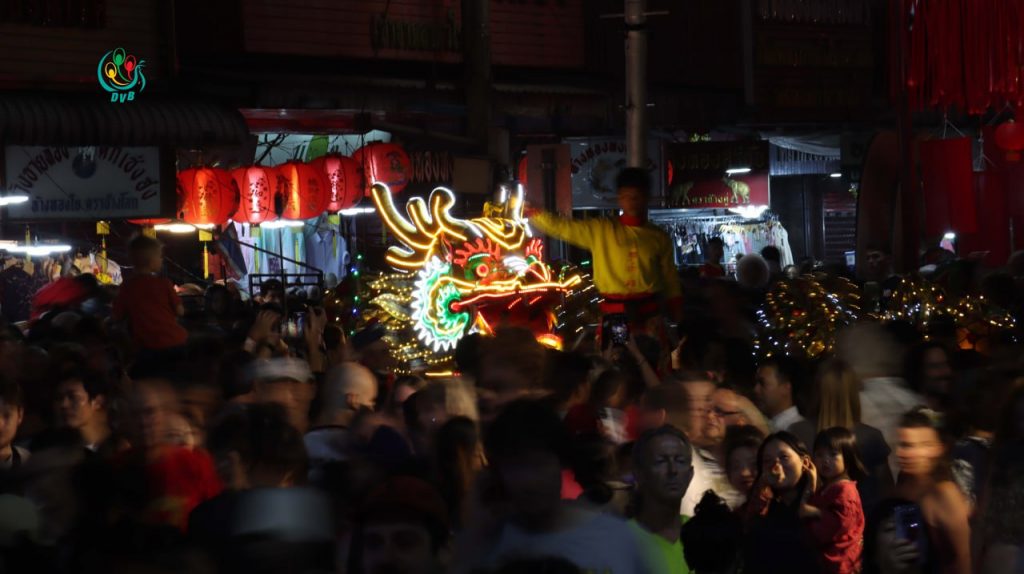
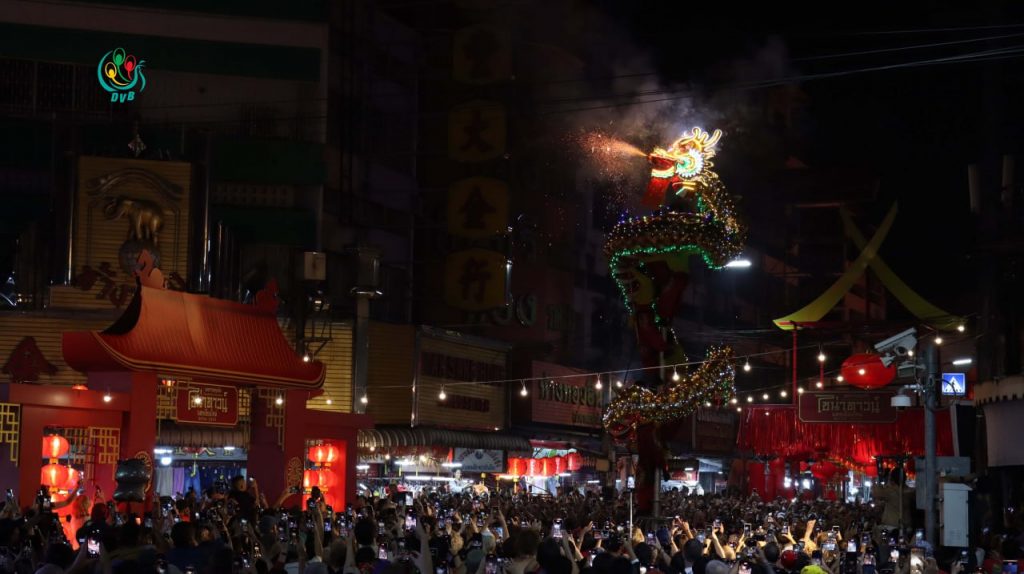
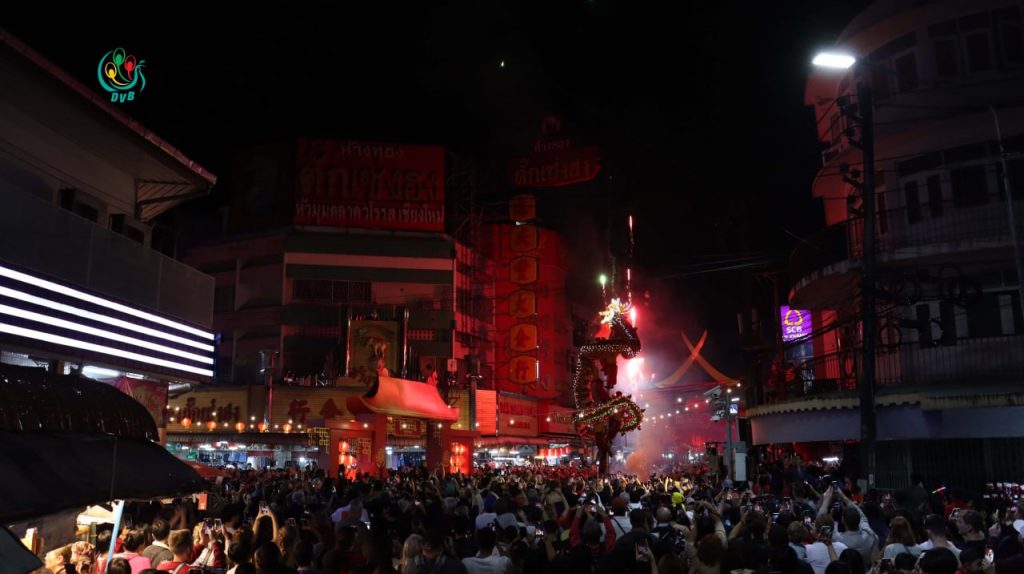
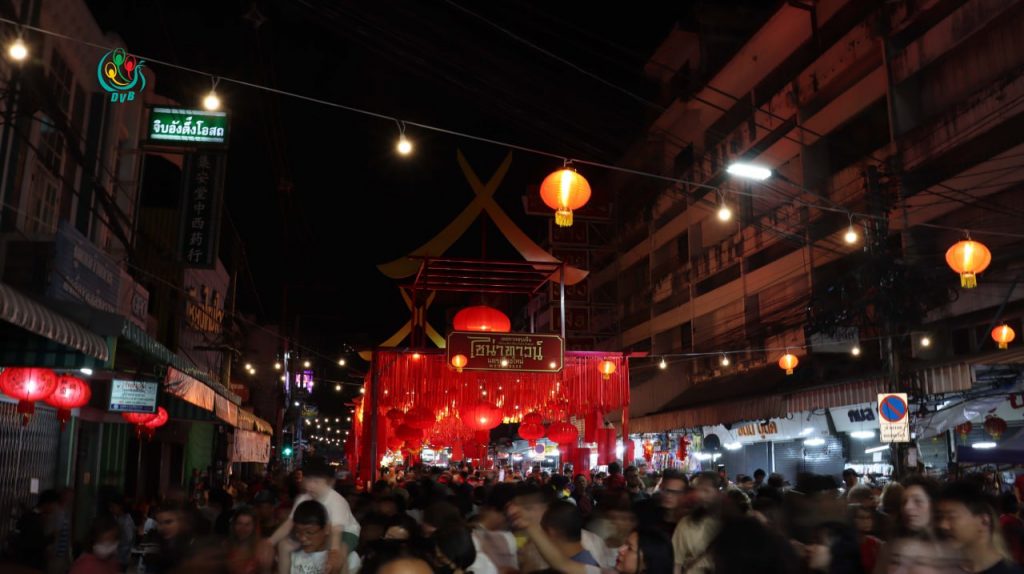
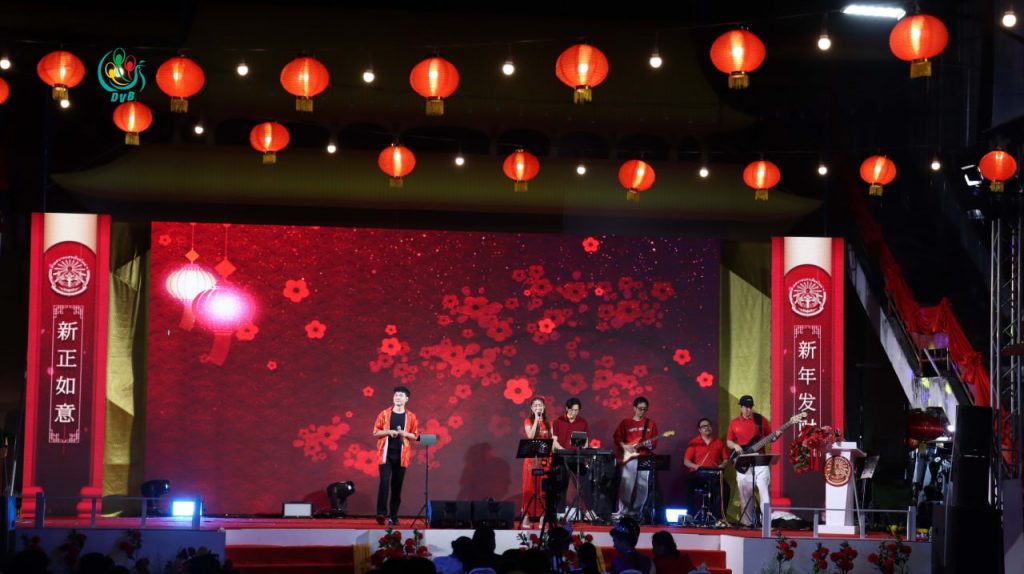
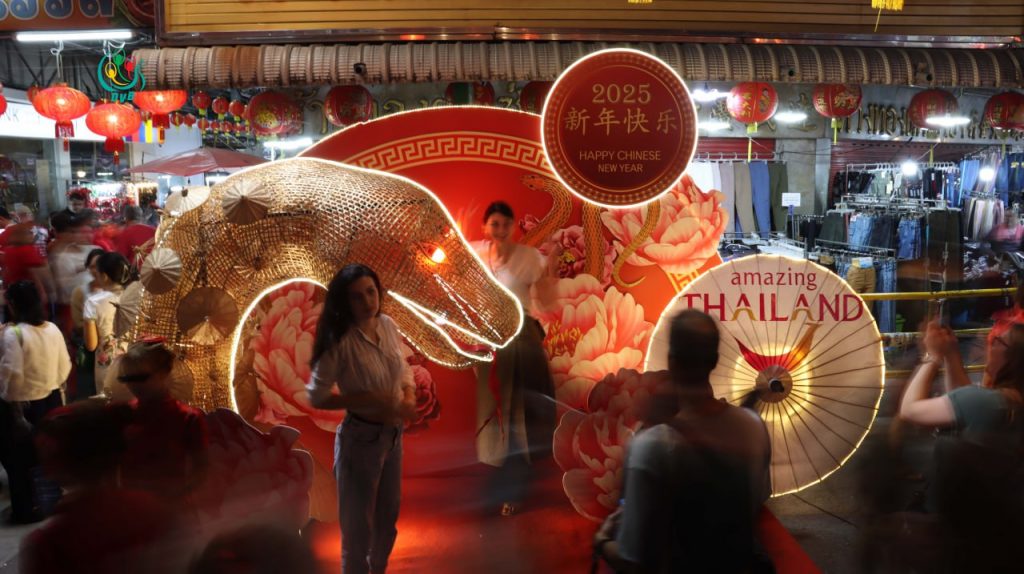
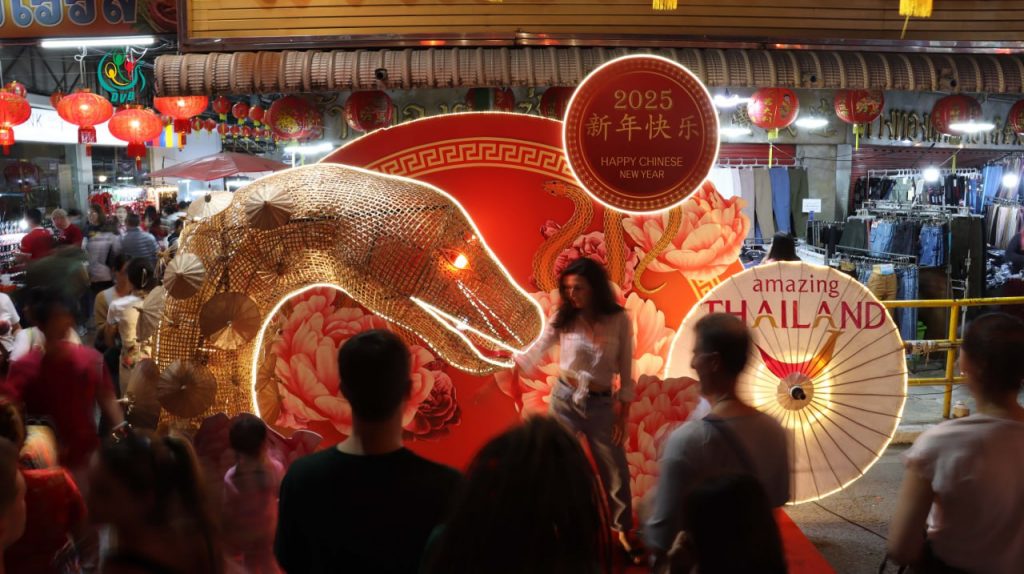
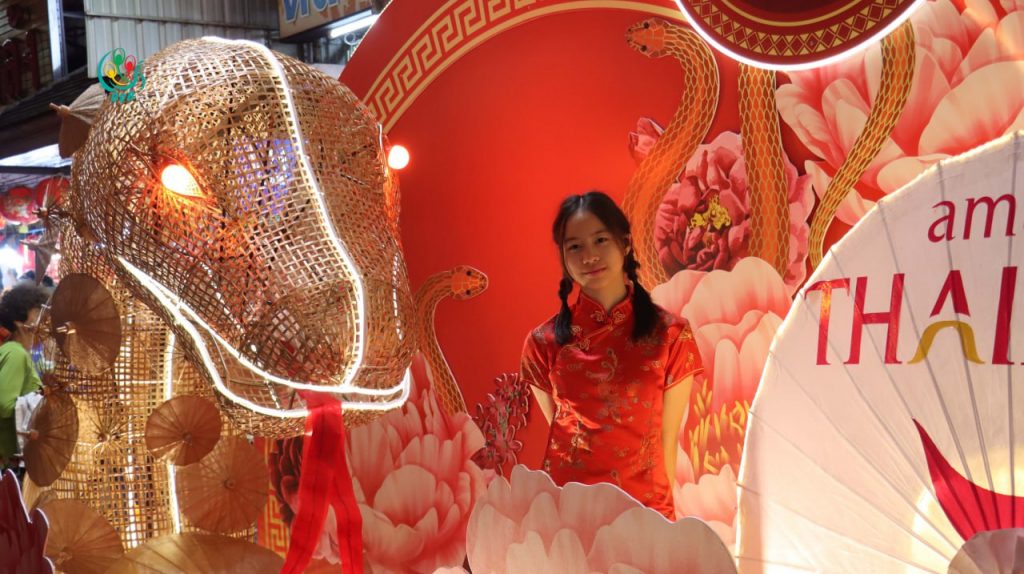
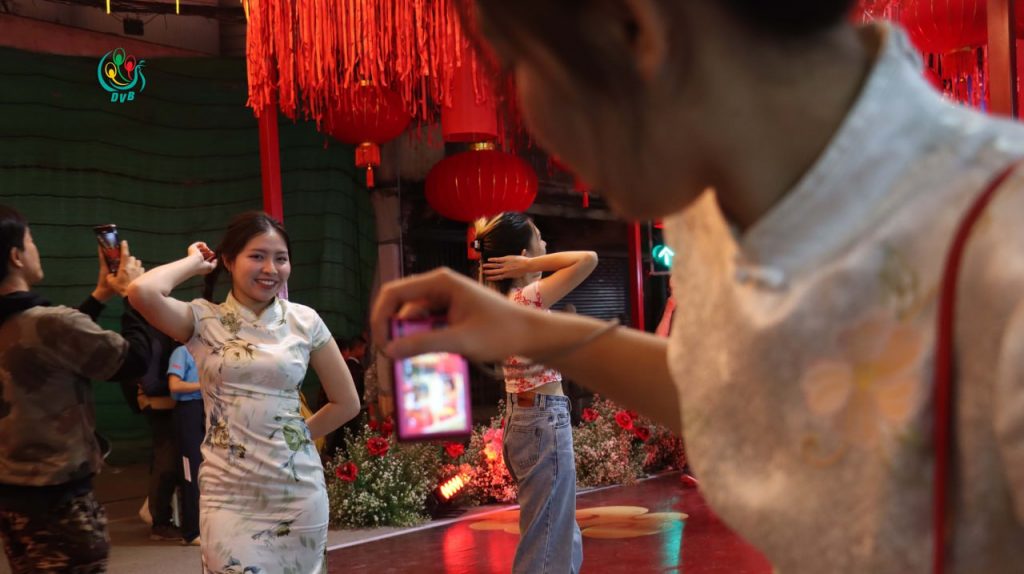
National Unity Government criticizes China’s role in Myanmar; New report explores trauma faced by political prisoners

National Unity Government criticizes China’s role in Myanmar
The National Unity Government (NUG) Ministry of Foreign Affairs held a press conference on Wednesday to share achievements and challenges over the previous year. The NUG Minister of Foreign Affairs Zin Mar Aung, Deputy Foreign Affairs Minister Moe Zaw Oo, and Burma’s Permanent Representative to the U.N., Kyaw Moe Tun, hosted the online event.
“Honestly, I think neighboring countries are closer to [the regime in] Naypyidaw than the people of Myanmar. It’s evident that cross-border crimes like scam centers thrive under this regime,” Zin Mar Aung told DVB, adding that while China claims it is not interfering in Burma’s internal affairs, it has pressured ethnic armed groups to end all cooperation with the NUG.
Zin Mar Aung added that Beijing does not want to cooperate directly with Naypyidaw as it would rather work with Bangkok in combating cyber scam centers along the Burma-Thai border. “We need to signal the message that we’re building a political system that can protect China’s interests [in Burma]. We also have to think up ways to implement stability on the ground to change China’s approach,” she said.
Report explores trauma faced by political prisoners
The Assistance Association for Political Prisoners (AAPP) and DIGNITY, the Danish Institute against Torture, published a report exploring the trauma and hardship faced by former political prisoners. The report called Struggle for Survival: Resilience in the Face of Prison’s Aftershocks is based on interviews with 22 men and eight women.
“Political prisoners in Burma endure unimaginable suffering, both during and after imprisonment. Their resilience is extraordinary, but their struggle continues in silence. This report amplifies their voices and calls for global action to end these atrocities and support survivors,” said Bo Kyi, the AAPP joint secretary.
The report stated that political prisoners have been forced to make a pledge not to speak out against their treatment upon release. Several have also faced surveillance. The AAPP wants the U.N. and the Association of Southeast Asian Nations (ASEAN) to support prison reforms in Burma, and invest in community-based psychosocial support for former political prisoners. The AAPP has documented 28,390 arrests since the 2021 coup with 21,668 still detained.
United Wa State Army accused of second Thai border intrusion
Rangsiman Rome, the chairperson of Thailand’s House Committee on National Security, Border Affairs, National Strategy, and National Reform, accused the United Wa State Army (UWSA) of establishing its camps inside Thai territory on Monday. He said he observed the UWSA camp from a military base in Wiang Haeng District of Chiang Mai Province.
“During this field visit, I witnessed the impacts of Myanmar’s political instability and the expansion of [UWSA] forces, which pose security and economic threats to Thailand. [My] committee will take the issues and challenges faced by field workers and submit policy recommendations [to the Thai government],” he said.
An anonymous source revealed to Thai media that the situation regarding the UWSA encroaching on the Nong Luang area in northern Thailand has not been resolved despite negotiations between UWSA and Thai military personnel. In December, reports emerged that 50 UWSA members were stationed at two bases that encroached on Thai territory in Pai district of Mae Hong Son Province.
News by Region

ARAKAN—Maungdaw Township residents told DVB that the Arakan Army (AA) has allowed 274 Muslim families, who had been displaced from their homes due to fighting between the AA and the military, to return home on Monday. Maungdaw is located in northern Arakan State near the Burma-Bangladesh border. It came under AA control on Dec. 8.
“The AA inspected our households and arranged [boats for us] to return. It is much better to be returning home than to be displaced,” a Maungdaw resident told DVB. The AA runs three separate camps for Internally Displaced Persons (IDPs) from the Buddhist, Muslim and Hindu communities of Maungdaw. Buddhist and Hindu residents were allowed to begin returning to their homes on Jan. 1. Read more.
MANDALAY—The regime’s Central Committee on Drug Abuse Control (CCDAC) announced on Tuesday, via regime media and the Ministry of Information, that it had seized narcotics worth over 3.4 billion MMK ($750,000 USD) in Mandalay on Jan. 23-24. Drugs worth 1.4 billion MMK ($310,000 USD) were discovered during a raid on two homes in Maha Aungmyay Township on Jan. 23.
The regime alleges that they were to be distributed to nightclubs and karaoke bars, known as KTVs, in Mandalay. On Jan. 24, police arrested a truck driver transporting amphetamine tablets worth over two billion MMK ($440,000 USD) in Thasi Township. He was allegedly transporting the drugs from Muse, in northern Shan State along the Burma-China border, to Yangon.
SHAN—The People’s Defense Force (PDF) in Moebye, Pekon Township, told DVB that it buried three of its members and an undisclosed number of others killed during fighting between resistance forces and the military on Wednesday. Pekon is located 104 miles (167 km) south of the Shan State capital Taunggyi and 21 miles north (33 km) of the Karenni State capital Loikaw.
“Aircrafts from the Burma Air Force carried out at least four airstrikes on Tuesday. Our comrades were killed due to airstrikes and artillery shelling rather than on-the-ground combat,” said a member of the Karenni resistance, who was fighting alongside the PDF. The military launched an offensive to take Moebye in November. It has carried out air and artillery strikes against resistance forces in southern Shan since Jan. 19.
(Exchange rate: $1 USD = 4,550 MMK)

Families in Yangon and Taunggyi report that names of woman added to lists for military conscription
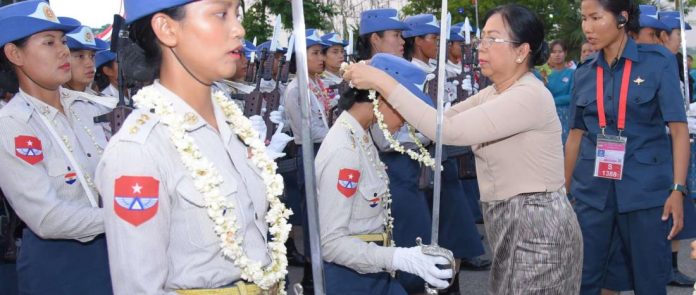
Residents of Shan State, as well as Yangon and Ayeyarwady regions, have reported that regime officials have begun registering women aged 18 to 27, who are eligible for military service, under its conscription law. Administrators have been verifying the registered addresses of these women to confirm if they are residing at their homes, according to local sources.
“Many young women working in factories around here are scared and either have returned home or have relocated to other areas. Authorities have been collecting [names for] registrations in recent days,” a Dagon Seikkan Township resident in Yangon told DVB.
Anonymous sources confirmed to DVB that ward and village administrators have begun verifying registration lists for women’s military service in several Yangon townships, including Dawbon, Thingangyun, Dagon Seikkan, Thaketa, Thanlyin, and Hlaing. The reports have mostly come from the city’s outskirts, where factories employing a large number of women are located.
“The implementation of women’s military service is now underway. We have learned that selected individuals will begin military training next month,” said a Taikkyi Township resident on the condition of anonymity. Taikkyi is located 49 miles (80 km) north of Yangon.
The Ayeyarwaddy Times online newspaper reported that the first intake of women conscripts for military training is expected to take place in February – one year after the law was enacted on Feb. 10, 2024.
A military recruitment official, who spoke on the condition of anonymity, confirmed reports of women being registered for military conscription. “It’s just collecting and registering eligible citizens. There are no formal summons for military service for women yet,” the official told the BBC.
In the Shan State capital Taunggyi, SHAN News reported that women’s names were included on lists of those being conscripted into the military.
“Which parent would feel good if their daughter is taken away for military service?” a mother replied when asked by SHAN News.
Under the conscription law, women aged 18 to 27 are required to serve in the military for at least two years, and up to five in the case of an “emergency.” Myanmar has been in a state of emergency since the military coup on Feb. 1, 2021.
The law also stipulates that men aged 18 to 35 must serve, if called upon to do so. Professionals like doctors and engineers must serve up to age 45. Married women and single mothers are exempt under the law.
The regime recently issued stricter regulations under its military conscription law. The first intake of military conscripts began last April, and the ninth intake commenced on Jan. 20. The Burma Affairs and Conflict Studies (BACS) stated that over 21,000 conscripts from intakes 1-6 have received training at 23 military schools nationwide.


